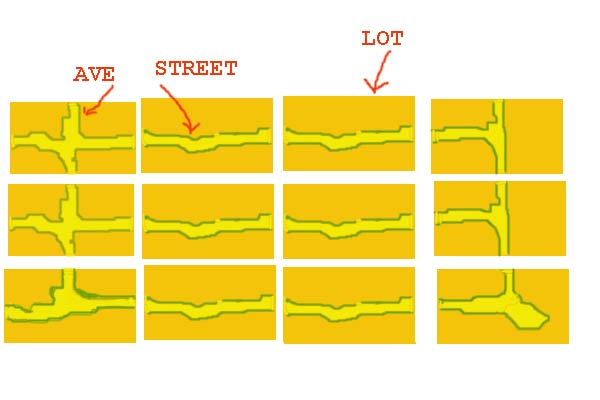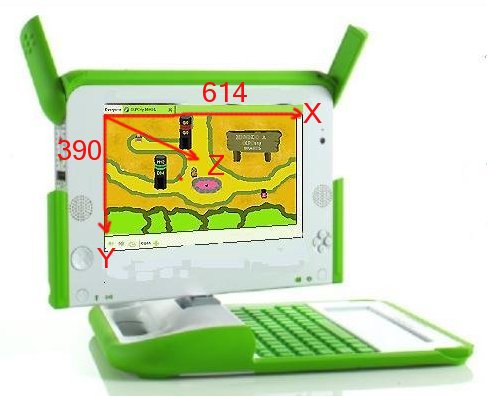OLPCities/Hello World!: Difference between revisions
No edit summary |
No edit summary |
||
| Line 10: | Line 10: | ||
You can use one of the sprites of our Inventory downloading from one of the pages: |
You can use one of the sprites of our Inventory downloading from one of the pages: |
||
*[[Floors]] |
|||
*[[Avatares]] |
|||
*[[3D objects]] |
|||
*[[Hard objects]] |
|||
*[[Animated objects]] |
|||
*[[Links]] |
|||
[[Image:Tut1-0.jpg|right ]] |
|||
Or you can create a new one (remember to put it available for everybody). You can modify something in the downloaded sprite. You can use the free [http://www.gimp.org GIMP] to do it. t the exercice we will create only a floor having a plaque (it's one of the "Hard objects") where can be readed: "HELLO WORLD!" |
|||
Revision as of 22:27, 20 September 2006
It's a tradition. The first application of a programer, when learning a new language, will write: "Hello World!"
Ok... but here "world" is too much! We are creating a "City"... Or, better our first exercice will be to create a "Lot".
What is a "Lot"?
In the figure you see a "City" having 12 "Lots". They are empty. At a real OLPcity each Lot has an activity that can be an educational game, a link to some article etc. etc.
A Lot is really a "normal" webpage created using objects of the "OLPCities Inventory". We are talking about objects in the OOPL sense. Somo of these objects will have a graphic representation that are "sprites".
You can use one of the sprites of our Inventory downloading from one of the pages:
Or you can create a new one (remember to put it available for everybody). You can modify something in the downloaded sprite. You can use the free GIMP to do it. t the exercice we will create only a floor having a plaque (it's one of the "Hard objects") where can be readed: "HELLO WORLD!"

